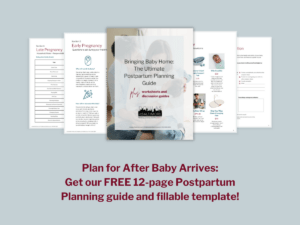The term ethical screentime sounds like an oxymoron. No way they both exist at the same time. But what if it can?
Screens are a part of our life. As adults, more and more of the functions we used as individual and private services are being moved onto a smart device for easier, faster, and more immediate interaction.
However, as parents, we are warned almost constantly about the dangers of screen time for kids.
Also, we know the charm and magic of childhood are that the imaginations and curiosity of children explode, hypothetically, when allowed to play. Playing in this way often does not happen when screens are around.
One of the hardest parts of parenting with the intent to promote screen-free-childhoods, or “appropriate screen use” is the hypocrisy that creeps into the equation. We, the adults, feel justified and “right” in using our devices, but for kids to have that much time is unhealthy, and not recommended.
We all know it’s not recommended. But most of us do it.
Could we do screen time better?
It can become a battle to get little people off of their shows and games. There are tears, and there are fits. There are very big feelings, on both sides, when parents interfere with the relationships kids have with their fictional characters.
And that is the thing that is just starting to get understood. Children intuitively seek relationships. They do it with almost everyone. Friends become BEST friends. Rocks become friends. Blankets, blocks, books, you name it. So it makes sense to learn that children form relationships with the characters in the shows they watch. (It’s not new either. Mr. Rogers and Sesame Street have been taking advantage of this behavior in educational ways for 50 years!)
And knowing what we know about the human need for belonging and connection, some researchers believe yes, we can do screen time better.
Some of the notions around screen use that have made it to mainstream parenting may sound familiar:
- set limits and have expectations with appropriate consequences.
- as your children get more language and more mature, let them be a part of the conversations and let them participate in setting the limits and consequences.
- And this idea may be new but is useful for you and your kids: before you pick up your phone, say out loud why you are using it. Are you checking the weather? Are you sending an email? Are you playing a game for a little bit? Making a conscious connection to a sometimes unconscious compulsion can help you realized how mindless some of your screen usages may be.
Addicted to Screens?
There is more recent evidence that may help you understand your role as the parent in helping your children have healthy boundaries with their technology.
Screens and the shows, games, and apps on them are being increasingly described and proven as “addictive.”
We all use screens more, and it’s getting harder to have screen-free spaces. When we are using our screens, it is almost impossible to have a connection with others around us at the same time.
The first three years of your child’s life are packed with neurodevelopment, and up until age 6, your child engages in implicit, not explicit, memory. Meaning, as psychologist Lisa McCrohan shares, your child’s body remembers, but their cognitive mind does not. So forming healthy bonds, emotional safety, and strong connections are most important during these young years because it does frame how the child sees the entire world.
One of the fundamental things children need is to feel included. They need connection to thrive. So if we are spending these first years letting screens do the relationship building, the neurological pathways that children need to learn how to make connections are not being built to communicate with other people.
They need bonds and connections, and when children do not have those things with the people around them, they will strive to form relationships with the people or things around them, like characters in a favorite show, or game.
Children’s minds are so amazing but also, obviously, not fully formed, so when a beloved show is turned off, if there is no connection to the people outside of the show, the showing going away feels like taking away their best friend for an unknown length of time. And it is incredibly distressing.
When screens are removed from kids that don’t have healthy boundaries and reliable expectations, there are usually tantrums and wild displays of emotions. Parents often turn to punishment, separation, or threaten their connection to beloved people or items in an effort to get them to behave – such as taking away screen time or making them sit apart from a group.
The problem is that when parents punish, shame, and threaten behavior from a small person who does not have the emotional development to regulate their feelings, they also weaken the connection between the child and themselves. No trust is built. There is no expectation of relationship to fill the gap. So what is a parent to do?
Screen time and building relationships:
1) Start with what you know: set limits and expectations both for screen time and for relationship building with family members/ friends/ and community members. When can they expect to have it? When can they expect to be with family members without screens for the intent of building familial bonds?
2) As a parent, understand your influence and how your behaviors are impacting your children’s view of what is acceptable. If your children copied your habits, would you be all right with that?
3) Understand that one of the basic needs of children is to belong, and look at how your family shows they love and connect. With young children, it often means lots unconditional love, eye contact, proximity to one another, and repetitive games.
4) Each child may have unique strengths that you will need to spend time understanding. Relationship building could look like asking for help. Or it could look like inviting them to run an errand. Or it could be working on a project together. It could also be as simple as you the adult, sharing what it was like for you to learn the things your child is learning.
Belonging is fostered when other’s opinions and thoughts are viewed as valuable. So ask about your child’s thoughts. Validate them comments, effort, and their physical presence. Continue to engage by encouraging conversation with questions, eye contact, and respectful replies.
Screens can be a part of your family. But they aren’t your family, and you have to model behavior that shows your kids there is belonging and connection outside of their electronic device.
Written by Ariel Swift




